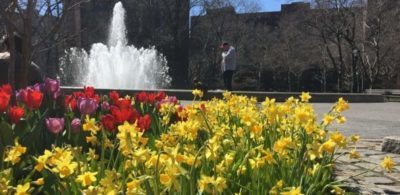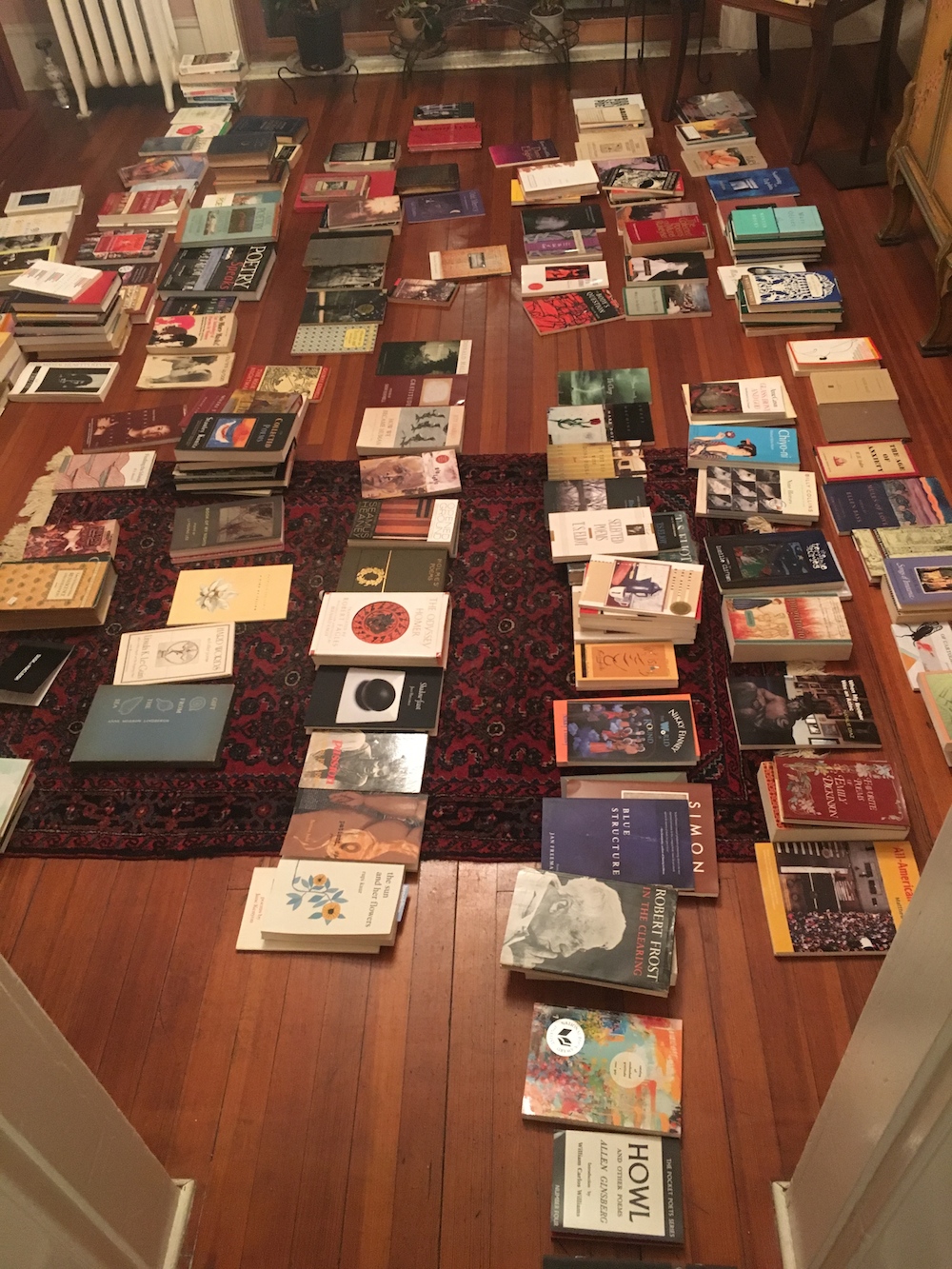
Gardening season and its discontents
The poetry of planting a garden–and lines of verse
Each summer I imagine that I will spend my days writing and gardening. That’s an idyllic combination – theoretically at least. Sadly, gardening is not my forte. Despite my annual attempts, I have not managed to create the symphony of color and bloom that I dream of. Weeds, you see, feel quite welcome in my garden. They are seldom disturbed and grow happily.
But I can’t give up on the idea of getting out there and dig gardening is one of those things a poet is supposed to be good at. Take for example one of my literary heroes, Stanley Kunitz, whose Provincetown garden bloomed through his poems all the way through his very old age, and whose gift for structure and rhythm made a poem of his garden as well. In “Journal of Solitude,” May Sarton writes extensively of her efforts at coaxing plants to grow at her rural New England retreat. Frost farmed.
 Maxine Kumin wrote of her garden often. Through her poems, I can see her mulching with newsprint, and gardening with her grandson. Most of the poets I know as friends have gardens, too. I run into them at farmers’ markets carrying armfuls of seedlings to bring home and sink into the soil, while I buy cut stems wrapped like ice cream cones in sturdy brown paper.
Maxine Kumin wrote of her garden often. Through her poems, I can see her mulching with newsprint, and gardening with her grandson. Most of the poets I know as friends have gardens, too. I run into them at farmers’ markets carrying armfuls of seedlings to bring home and sink into the soil, while I buy cut stems wrapped like ice cream cones in sturdy brown paper.
I know I should try harder, put down the pen, pick up a trowel. I’d be a more balanced person, and probably a more skillful writer if I did. Gardening trains the poet, after all. The skills are transferable: The poet lays down lines, planting syllables, and weeding out extraneous words. Like a garden plot, a poem benefits from careful pruning. Then there’s the compost bin. In “The Round” Kunitz describes the ‘steamy old stink pile’ outside his window. What a wonderful metaphor for the way images, memories, dreams, snippets of conversation and experience sink into the black gold of our subconscious minds. Then, like the banana peels, eggshells, and coffee grounds that we leave to decompose in some corner of the garden … they transform into rich, the fertile ground from which poems might blossom.
Perhaps this weekend or next, or the one after that, I’ll drive out to some lovely perennial farm and buy some bee balm, black-eyed Susans and delphinium. And maybe then I will plant them in my yard.
More likely, I’ll take breaks from my desk to walk through the neighborhood, and I’ll wave my hello’s to industrious neighbors busily pulling out dandelions to make way for new plants to grow. And then I’ll return to my room, look out over my untended yard, and write.
Ah, summertime and the writing is … not always so easy. Read on for more posts about a dreamy summer from the desk of yours truly:
What I Did on My Summer Vacation
This was my 9-5 during my weeklong summer vacation at Writing Camp: By day I wrote, shared work aloud with 11 other writers, and talked shop (mostly) during lunches around a large wooden table, our plates heaped with fresh salads, hearty breads, and nourishing entrees.But in a sense, for me the real work took place at night. KEEP READING
Writing Retreat Day 1: From Akhmatova to Yeats
At the close of my first day of a weeklong writers retreat, I found myself at a loss. At issue were my poems, which despite months of revision, could not be coaxed to coalesce into a book. So, after mucking around on the page till dinnertime I called it a day, and rather than go on auto-pilot and lose myself in the Netflix series that I’m currently addicted to, I decided instead to alphabetize my poetry bookshelves, which have been in a state of disarray since I moved nearly a year ago. KEEP READING

Tzivia, I say allow yourself to give up the gardening fantasy. Buy beautiful bouquets at the farmers mkt & fill your house with flowers. Patronize the local farm stands & enjoy the pleasing veggies. You dont have to garden! I remember the moment of liberation I felt when I told myself I didn’t have to go in the water & become a swimmer.
I love this, Naomi! Thank you. I am on my way to the farmer’s market now!